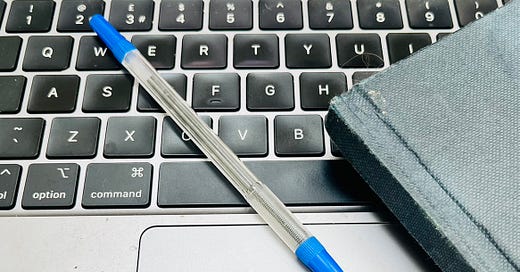We request and recommend a review of Section 5.1
‘5.1: Introduction
‘For the purposes of the Editorial Guidelines and unless stated otherwise, a child is someone under the age of 16 years. Young people are those aged 16 and 17 . It should be noted that these are not legal definitions.’
You note that these are not legal definitions but you have given no explanation or justification for setting the age of a ‘child’ as up to 16.
This is outdated. We urge you to reconsider and to accept that for the purposes of BBC Editorial Guidelines, a child is someone aged under 18.
The phrase ‘young people’ is misleading and open to interpretation. A ‘young person’ may be under or over 18. There are two alternate words that do not have this ambiguity: ‘minors’ and ‘adolescents’. However we urge you to remove all ambiguity and default to consider all those under 18 to be children for the purposes of the guidelines.
The UN Convention on the Rights of the Child defines a child as ‘a person below the age of 18, unless the relevant laws recognise an earlier age of majority’.
Note the caveat, and note that the relevant laws in the UK do not recognise an earlier age of majority.
Please read the latest government guidance published in December 2023. 'In this guidance, a child is defined as anyone who has not yet reached their 18th birthday'
Please read this guidance from the NSPCC. It explains the definition of a child in all four nations of the UK.
For example - England:
‘In England, a child is defined as anyone who has not yet reached their 18th birthday. Child protection guidance points out that even if a child has reached 16 years of age and is:
living independently
in further education
a member of the armed forces
in hospital; or
in custody in the secure estate
they are still legally children and should be given the same protection and entitlements as any other child (Department for Education, 2023)’
The latest government guidance and the United Nations have chosen 18 as the cut off. The closest legislation to the BBC Editorial Guidelines is the Children and Young Persons Act 1933, with the difference that it has selected 16 rather than 14 as the cut off.
Before concretising is in guidelines for the next five years, the BBC should be able to justify its decision to move away from international and domestic recommendations. It should also seek to publish the safeguarding document that explains the decision. We suspect it will prove impossible to justify - or even to establish how and why this decision was originally taken.
This is a very serious blurring of boundaries that the BBC now has the opportunity to rectify.
We are also specifically interested in media content visible to children (under 18-year-olds) concerning gender and ‘gender identities’.
Children/minors/adolescents are particularly vulnerable to misleading or loaded content on this issue. BBC Editorial Policy should consider this one of its determining factors in its age delineations, due to the influential nature of gender-affirming output and the scale of harm and potential harm.
We refer you to Section 3.4.9 of the draft guidelines noting the specific significance of health journalism:
‘This is particularly true in reporting health stories that may cause individuals to alter their behaviour in ways that could be harmful. The emotional impact of pictures and personal testimony should be considered, particularly on perceptions of risk.’
Therefore we request that you to look at the Cass Review with specific reference to treating under 18s as ‘children’ rather than ‘young people’.
The Review noted that transitioning and vulnerable children, adolescents and young people aged 17 and up need similar protections as children aged 17 and under. It consistently references 18 as the age for medical interventions, and makes recommendations of additional services for young adults (over 18s) aged up to 25, because of the timeline of brain maturation. NHS England has always set 18 as a cut off age for ‘transition’ surgery.
Note: we are aware the General Medical Council uses ‘children’ to refer to ‘younger children who do not have the maturity and understanding to make important decisions for themselves’ and ‘young people’ for ‘older or more experienced children who are more likely to be able to make these decisions for themselves’. This is a safeguarding failure. The findings of the Cass Review show us that relying on the maturity and experience of under-18 year olds as a
guide is subjective and unreliable at best, and irresponsible at worst. It’s important to observe that even the GMC still understands under-18s to be children, as it perhaps unwittingly describes them as ‘children’ in its own glossary.
In sum, given the United Nations definition, UK legislation and guidance, and the particular safeguarding needs of health journalism and health media content focused on children, we request that you rewrite the relevant section of Draft Guideline 5:1 and replace it with:
‘For the purposes of the Editorial Guidelines and unless stated otherwise, a child is someone under the age of 18’.




Great work with all today’s amazing detailed responses to the BBC’s (at last) trying but totally failing to do its job after a decade of ideological bias on gender. How can we all help hold the BBC’s lofty nose to its proper grindstone?